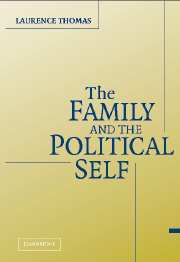Epilogue: Liberty: Between Plato and Modern Liberalism
Published online by Cambridge University Press: 05 June 2012
Summary
Much of contemporary political theory reads as if the most important good that an individual could possess, given that all basic needs are adequately met, is liberty. To be sure, an immutable constraint is that everyone must have the same liberty; hence, some forms of liberty are ruled out because either not everyone could have that liberty or society would cease to be stable if everyone did. It is striking that Rousseau thought no such thing. For he held that human beings possessed more liberty in the State of Nature than in Civil Society. What is more, he thought that human beings were generally able to meet their basic needs even in the State of Nature, although admittedly Civil Society facilitates that considerably. In the State of Nature human beings have pure liberty, as I shall say. They are free to do whatever it is that they have the wherewithal to do. What Rousseau grasped most profoundly is that pure liberty leaves human beings shorn of an awful lot. In particular, it leaves them shorn of the basic ingredients by virtue of which human beings will flourish, where minimally flourishing is understood as using one's talents and gifts in productive ways that make the human condition more ennobling.
I shall contrast pure liberty with what I call structured liberty. In Western thought the most well-known example of structured liberty is Plato's Republic, which interestingly Rousseau held to be a most important work.
- Type
- Chapter
- Information
- The Family and the Political Self , pp. 171 - 176Publisher: Cambridge University PressPrint publication year: 2006

